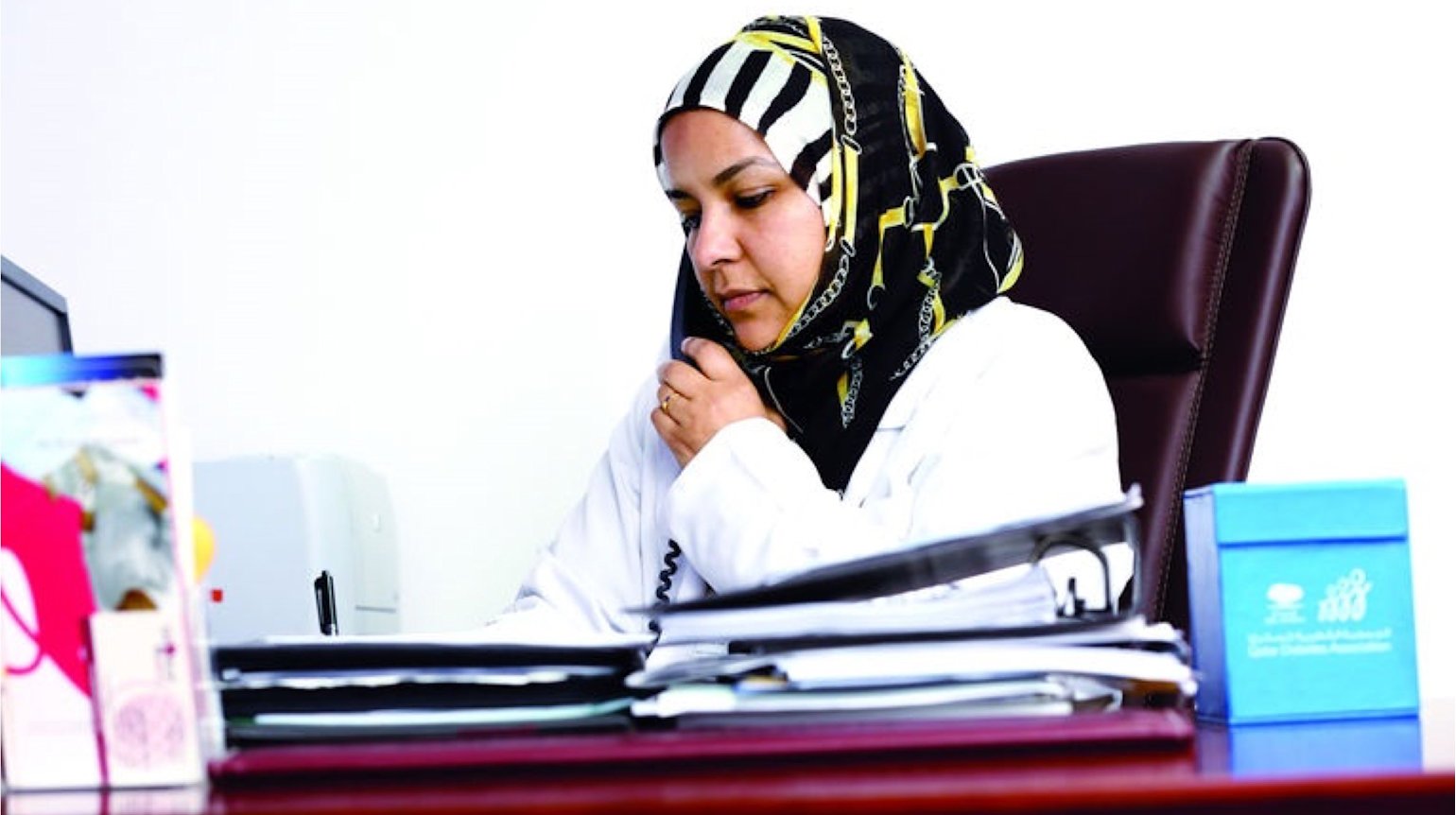Coronavirus (COVID-19) Updates
For the latest COVID-19 information and updates from Qatar Foundation, please visit our Statements page

The Ministry of Hajj and Umrah in Saudi Arabia announced In August 2021 that it will open the Umrah pilgrimage to vaccinated worshipers
Image source: Sufi, via ShutterstockDr. Amal Adam from Qatar Foundation’s Qatar Diabetes Association shares important guidelines that people diagnosed with diabetes should follow during Umrah
In August 2021, the Saudi Ministry of Hajj and Umrah announced that it will open the Umrah pilgrimage to vaccinated worshipers. With Umrah having been suspended for overseas worshippers for more than a year due to the ongoing COVID-19 pandemic, this change in rules has resulted in an increase in the number of people in Qatar wanting to perform Umrah.
Hypoglycemia – low blood sugar – is a common occurrence among diabetics during the performance of the rites of Umrah
In this context, Dr. Amal Adam, Head of the Health Education Department at Qatar Foundation’s Qatar Diabetes Association, shared important instructions to be followed by diabetic patients who wish to perform Umrah, explaining the most common risks, and how to avoid them.
"Hypoglycemia – low blood sugar – is a common occurrence diabetics during the performance of the rites of Umrah,” said Dr. Adam.
She explained that in order to avoid hypoglycemia, patients must consume a specific amount of sugar-rich foods, such as juices, soft drinks, glucose tablets, and dates, as well as check their blood sugar levels at regular intervals during their Umrah.

Dr. Amal Adam, Head of the Health Education Department at Qatar Diabetes Association.
Dr. Adam indicated that a drop in blood sugar may occur during Umrah as a result of increased physical activity, and missed or delayed meals.
She advised diabetic patients to visit a doctor before traveling for Umrah to assess the doses of insulin or oral diabetes medications needed to correspond to the physical effort expended in performing the rituals of Umrah.
People diagnosed with diabetes are likely to spend more time in physical activities compared to their usual lifestyle, so necessary changes in their medication should only be made after discussing with their doctor before the Umrah, according to Dr. Adam.
Hypoglycemia – low blood sugar – is a common occurrence among diabetics during the performance of the rites of Umrah
“People who follow a mixed insulin regimen twice a day can change it to the basal insulin regimen for more flexibility, and to reduce the risk of hypoglycemia, taking into account that they need to discuss any changes in the treatment plan with their physician or specialist."
Dr. Adam pointed out that proper storage of insulin is very important, especially during hot days, as it may affect the absorption of insulin in the body, which can lead to low or high blood sugar.
She also stressed that pilgrims diagnosed with diabetes must carry a bag containing a blood sugar test device and its accessories, such as needles and tapes. They also need to place insulin inside a special bag, and always have a quick source of sugar, such as glucose pills, juice, or dates, on hand.
Given that most pilgrims walk long distances on foot during Umrah, Dr. Adam added that choosing good quality shoes is key to preventing foot ulcers. Wearing appropriate, comfortable shoes reduces the risk of injuries which may result in health risks, since any wound may lead to infection if blood sugar is not controlled.
I circled around the Kaaba on foot, but used a wheelchair during Sa’ee. Following that, I had a full lunch, and made sure to take a break so that I could go down to Al-Haram to pray and read the Holy Qur'an
Dr. Adam further stressed the need to observe good foot care throughout Umrah. She said: “When returning to the hotel or place of residence, feet should be examined well with a mirror, then washed and dried well, especially between the toes. Also, special creams should be applied to the feet to prevent drying, while avoiding applying such creams between the toes.”
Salha Misfir Al Kubaisi, a vaccinated housewife, who was diagnosed with Type 2 diabetes, decided to perform Umrah after a long wait. She said: “I followed the doctor’s instructions regarding insulin injections. I used to take my injections three times on a 10-unit dose scale – at breakfast, lunch, and dinner.

An online session held to raise awareness about diabetes and Hajj and Omrah.
“I circled around the Kaaba on foot, but used a wheelchair during Sa’ee. Following that, I had a full lunch, and made sure to take a break so that I could go down to Al-Haram to pray and read the Holy Qur'an."
Al Kubaisi explained that she always sought to avoid direct sunlight during the afternoon, and was keen to drink water regularly, and to dry her feet well after ablution, especially between the toes to avoid infections.
Dr. Adam presented a set of recommendations for diabetics on nutrition and hydration during Umrah. "Increasing physical activity, such as walking for long periods of time during Umrah and exposure to high temperatures, increases the body's need for water, so it is very important to drink enough fluids on a daily basis,” she said.

